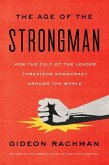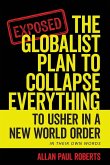What if the greatest threat to our world isn't sudden disaster-but slow, invisible unraveling? This gripping investigation traces the rise and fall of once-mighty civilizations-from the fall of Rome to the vanished cities of the Khmer and Maya-to reveal a sobering truth: collapse follows a pattern. And we're repeating it. More than a history of ruins, this book is a roadmap through the forces that shape human destiny. Drawing from systemic risk history, ecological studies, and cultural anthropology, it shows how civilization collapse happens not through singular catastrophes, but through a convergence of ignored warnings, institutional decay, and elite overreach. Yet from these collapses rise lessons-on adaptation, humility, and the surprising strength of legacy systems that endure long after the fall. For curious readers of global history, systems thinkers, and anyone seeking lessons from fallen empires, this is a revelatory look at how power erodes and resilience is built. It's for those asking: what survives when a world ends? How can understanding the end of civilizations help us rethink today's most pressing challenges-from climate change to political fragmentation? Inside the book discover: - How ancient civilizations overreached and cracked under ecological or social pressure; - Why cultural resilience matters more than military power; - What the collapse of empires reveals about globalization today; - Why nostalgia and myths often cloud the real causes of societal failure; - How to spot the early signals of systemic breakdown in our own world Whether you're drawn to the Maya, the Ottomans, or the shadow of modern overreach, this book will change how you see the past-and sharpen how you navigate the future.
Bitte wählen Sie Ihr Anliegen aus.
Rechnungen
Retourenschein anfordern
Bestellstatus
Storno








